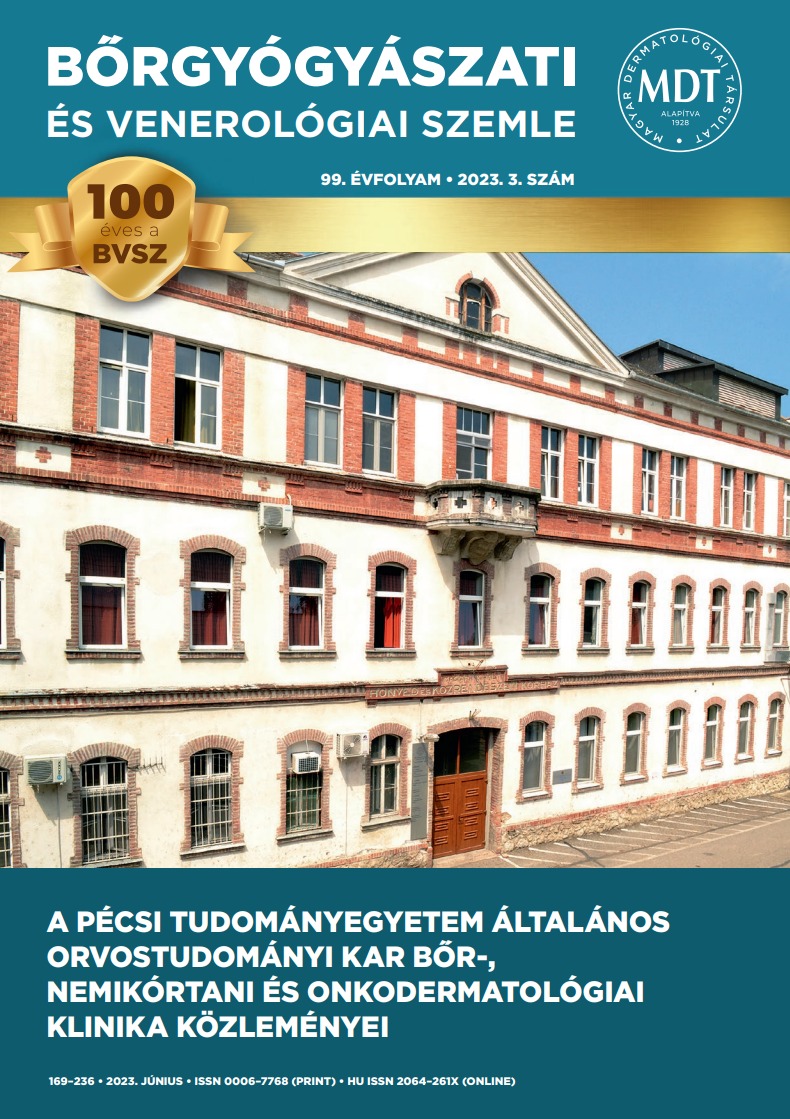Juvenile pustular psoriasis with erythrodermia
Abstract
Juvenile generalized pustular psoriasis is an extremely rare clinical variant of psoriasis, in which extensive skin symptoms, erythrodermia, subcorneal pustules are often accompanied by systemic symptoms, fever, arthritis
and laboratory abnormalities. In severe cases, lifethreatening condition may develop. Recently, there is increasing evidence that von Zumbuch-type generalized pustulosus psoriasis (GPP) is associated with increased innate immune activity, and autoinflammatory processes dominate, whereas in plaque-type psoriasis (PV) the role of adaptive immunity is typically predominant. Currently, there is no standard therapeutic guideline for the treatment of childhood cases, which makes selecting and administering the appropriate therapy for pediatric patients challenging.




